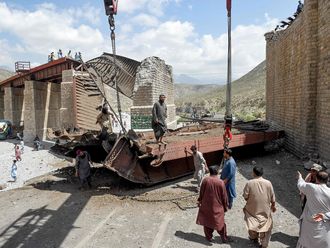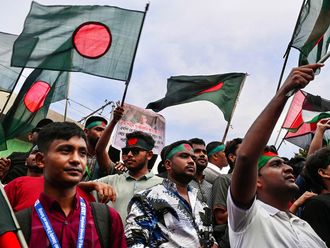Islamabad: President Asif Ali Zardari will see most of his powers stripped and his office turned into a figurehead role under sweeping constitutional changes introduced on Friday and expected to be passed by parliament this week.
Support is virtually unanimous for a constitutional amendment that returns the bulk of the powers held by the president to the prime minister.
Zardari himself backed the change, giving in to political pressure from all sides to relinquish powers that had been acquired by military ruler Pervez Musharraf.
Washington has a strong relationship with Zardari but experts said they did not expect the rapport with Islamabad to change significantly with Prime Minister Yousuf Raza Gilani leading the government.
Pakistan's military will still have profound influence over relations with the US
"This shouldn't have any implications for US-Pakistani relations," said political analyst Hasan Askari Rizvi.
"With Gilani, there's no difference." Zardari's archrival, former prime minister and opposition leader Nawaz Sharif, has long pushed for the weakening of presidential authority, recently calling Zardari "the biggest threat to democracy".
Sharif also stands to benefit from the constitutional changes. A key provision would allow prime ministers to serve more than two terms. Sharif, who lobbied hard for the provision, has already served two terms as prime minister.
Survival
The changes would allow him to serve again if his party wins country wide elections in 2013.
Surrendering some presidential powers was a matter of political survival for Zardari, analysts say.
During his 18-month presidency, Zardari has been hamstrung by an antagonistic relationship with the powerful military, which sees him as too pliant in his relations with the United States and bent on curbing the clout of the security establishment.
"It's not a voluntary act," Rasul Bakhsh Rais, a Lahore-based political analyst, said of the president's support for the reforms.
"It's the result of pressure from political forces. It's a political compulsion which allows him to stay in power."
Agreeing to a reduced role allows Zardari to retain the mantle of president, and he will still wield the power that comes with being chairman of the ruling Pakistan People's Party. Though Gilani will become the dominant figure in government, he will still be politically subordinate to Zardari within the party's hierarchy.
Lawmakers hailed the 18th amendment to Pakistan's 37-year-old constitution as a step toward forging a democracy anchored by a strong, independent parliament.
"We've gone back to the intent of the framers of the original constitution, which is to have a parliamentary democracy in this country," said Shahid Khaqan Abbasi, a lawmaker with the PML-N.












